President William Ruto on Wednesday, September 24, 2025, delivered Kenya’s National Statement at the General Assembly Debate of the United Nations in New York. In his speech, Ruto called for the reform of the UN to reflect and address current global realities. At the same time, Ruto called for reform of the international financial system, arguing that its outdated rules punish vulnerable nations with debt and high costs while rewarding the already wealthy. Here is the complete speech:
“The President of the 80th Session of the UN General Assembly, Ms. Annalena Baerbock, Secretary-General of the United Nations, António Guterres, Excellencies, Heads of State and Government, Distinguished Delegates, Ladies, and Gentlemen,
- I congratulate you, Ms Annalena Baerbock, on your election to preside over the 80th Session of the UN General Assembly. Madam President, you can count on Kenya’s full support throughout your tenure as you steer the Assembly into the future.
- Ladies and gentlemen, 80 years ago, in the aftermath of unprecedented global destruction and devastating war, the international community came together in hope. They created this Organisation – the United Nations – as a shield against the horrors of war, as a platform for dialogue, and as a bridge to a better, fairer, more secure global community.
- What is often forgotten, or not mentioned today, is that the United Nations grew out of the failure of the League of Nations, which existed between 1919 and 1945.
- The League of Nations did not collapse for lack of good intentions or noble objectives. Formed at the end of the First World War, and as part of the Treaty of Versailles, it was humanity’s first attempt to build a permanent international organisation to stop aggression, end war, and bring nations together. Its ambitions were to achieve collective global security, disarmament, peaceful dispute resolution, and cooperation on humanitarian and social issues.
- Despite these ideals, the League of Nations faltered. The United States never joined; other great powers came and went, and without enforcement authority, its condemnations carried little weight.
When Japan invaded Manchuria, when Italy marched into Ethiopia, and when Hitler openly defied its rules, the League stood by, helpless and powerless. By the late 1930s, its credibility had collapsed, and with the outbreak of World War II, it was rendered irrelevant.
- Madam President, this history is both a lesson and a warning. Institutions rarely fail because they lack vision or ideals; more often, they drift into irrelevance when they do not adapt, when they hesitate to act, and when they lose legitimacy. To remain relevant, institutions must be re-imagined, reformed, renewed, and aligned with emerging realities.
- Eight decades ago, the founders of the UN sought to correct the failures of the League by creating a stronger, more inclusive organisation, anchored in the principle of “We the peoples of the United Nations, determined to save succeeding generations from the scourge of war”.
- Today, as we gather for the UN@80, the question is unavoidable: Is the United Nations relevant to the demands of our time? Can it continue to serve humanity in the face of current realities? Or has it become a relic of a bygone era?
- Madam President, Excellencies, we meet against a grim global backdrop. Conflict rages in Eastern Europe, the Middle East, the Sahel, the Horn of Africa, and Climate disasters grow fiercer by the year. Inequality deepens, pandemics loom, and technological disruption outpaces governance.
- Instead of trust, mistrust is spreading. Instead of solidarity, fragmentation is taking In place of hope, anxiety fills our global community. We are living, to borrow from the words of the founders of this institution, not in “larger freedom,” but in growing uncertainty.
- At this moment of turbulence, when we most need a strong United Nations, the organisation faces its deepest crisis in credibility and capacity. Funding cuts have paralysed its operations. Bureaucracy has slowed its response. The Security Council remains frozen in the post-war structures of 1945, unable to act inclusively, with fairness and with speed.
- Ladies and Gentlemen, I can, however, state with absolute conviction that the United Nations has been one of humanity’s greatest achievements. For eight decades, it has held back the spectre of global war, calmed conflicts from Cambodia to Liberia, and stood guard in some of the world’s most dangerous places through the courage of its peacekeepers. Few institutions in human history can claim such a legacy.
- The UN has stood at the frontlines of humanitarian crises: From famine relief in the Horn of Africa to emergency shelter for millions of Syrian and Ukrainian refugees. It was at the forefront in the eradication of smallpox, coordinated global responses to HIV/Aids, Ebola, and COVID-19, and continues to champion universal
- Its agencies have advanced women’s rights, protected children, safeguarded refugees, and set global norms on everything from disarmament to climate action. The UN’s Sustainable Development Goals remain a shared blueprint for human progress. These are achievements no nation could have accomplished alone, however rich or great.
- And yet, every institution, no matter how noble its origins or impactful its legacy, must adapt to changing times or slide into irrelevance. Today, the United Nations stands at a crossroads of renewal or decay.
- Put differently, after 80 years, the rhymes of time are calling on us to re-imagine the original promise that inspired the founding of the United Nations: the quest for global peace, development, and human rights. But this call must now be answered in a global context that is profoundly different from the post-war era in which the UN was
- We would be denying the cold, hard truth if we said that the United Nations is delivering as it should. On peace and security, its voice is too often drowned out by the rivalries of great powers, while some nations simply ignore its resolutions and do as they please. Too often, the UN’s Blue Helmet, once a symbol of moral authority, no longer commands the same respect. From the conflicts in Gaza and Ukraine to the crises in Sudan, DR Congo, Somalia, and the Sahel, we see actors proceed undeterred by the UN’s calls.
- Excellencies, Ladies and Gentlemen, Kenya speaks from the experience of a nation deeply invested in multilateralism. For decades, we have placed our troops and police in harm’s way for peacekeeping missions across Africa and beyond— from Somalia to the Democratic Republic of Congo; from South Sudan to, most recently, Haiti.
- Over the past 15 months, we are proud to have led the Multinational Security Support (MSS) mission in Haiti, not because it has been easy, but because solidarity is the essence of the United Nations.
- Madam President, the mandate of the MSS mission is coming to an end in a few days. As the lead nation, allow me to briefly share our experiences— the successes and the challenges— as both a cautionary tale and a living lesson about the strengths and weaknesses of the current global governance architecture.
- For far too long, the people of Haiti called out to the Too often, their pleas were met with silence, hesitation, or half-measures. Haiti became a tragic reminder of what happens when the international community looks away, prevaricates, or offers half-hearted support.
- When Kenya responded to the request of the Haitian authorities, it was in the belief that we were joining a genuinely multinational effort. We welcomed and fully embraced Resolution 2699, by which the United Nations Security Council authorised the MSS with Kenya as the lead nation.
- Drawing on our decades of peace support operations, we stepped forward, offered to lead, and deployed our officers to confront the rampant menace of gang violence in Port-au-Prince and its
- Madam President, Ladies and gentlemen, the mission has operated in a volatile environment under enormous constraints. It has been underfunded, under-equipped, and operated below 40% of its authorised personnel strength.
Also Read: Ruto Shares His Plan to End the Israel–Hamas War
Our police officers have valiantly shouldered responsibilities without the full logistical support that should accompany any mission sanctioned by the United Nations.
- Despite these challenges, and against all odds, the MSS has delivered results many thought were The Presidential Palace, once under siege from gangs, is today restored as the seat of government. The police headquarters and the police training academy, once overrun by gangs, are now secure, with the academy resuming the training of new officers, over 700 of whom graduated a few months ago.
- Schools that had been shuttered by violence have reopened, with children back in class, learning and Roads once manned or blocked by gangs have free-flowing traffic. Cases of kidnapping and extortion have reduced sharply. The airport and seaport, once surrounded by gangs, are now abuzz with normal operations.
- Which begs the question: If so much could be achieved with limited resources and stretched personnel, within just 15 months, what more could have been accomplished if the United Nations fraternity had truly acted together in solidarity with the people of Haiti?
- From this podium, I wish to assure all partners and actors that, with the right personnel, adequate resources, appropriate equipment, and necessary logistics, Haiti’s security can be restored. Gangs can be neutralised, and the safety of streets, schools, hospitals, and homes secured. The continued harassment, abductions, and criminal acts undermining the lives of Haitians are unacceptable and unjustifiable, and must be stopped.
- Madam President, as the UN Security Council deliberates on the next steps, we must not lose sight of the fact that the situation in Haiti demands sustained, coordinated, and undivided international attention. A careful and orderly transition from the MSS is essential to consolidating the hard-won gains so far achieved. I urge the Security Council and all partners to remain steadfast in ensuring that Haiti moves forward on a path of peace, stability, and renewal.
- Ladies and Gentlemen, on human rights, our principle is clear and unwavering: the protection of civilians and respect for humanitarian law cannot be applied selectively. We cannot condemn suffering in one place and turn a blind eye in Kenya is gravely concerned by the humanitarian catastrophe in Gaza, and by the immense suffering of civilians caught in the devastation of disproportionate military operations.
- At the same time, we call for the unconditional release of Israeli hostages. In line with the African Union and United Nations resolutions, we also call for a permanent ceasefire, for strict adherence to international humanitarian law, and for the launch of a credible political Only through such a process can the vision of a two-state solution be realised — where Israel and Palestine live side by side, in peace and in security.
- Kenya is equally deeply troubled by the worsening humanitarian situation in Sudan, where innocent citizens are caught in the crossfire of a needless war. We fully endorse the Quad— comprising Egypt, Saudi Arabia, the United Arab Emirates, and the United States—in affirming that there can be no military solution and that only political dialogue offers a viable path We join the Quad in urging all parties, including SAF, RSF, and external actors, to respect Sudan’s sovereignty, unity, and territorial integrity, and firmly reject any attempts to divide the country, reaffirming our unwavering support for a unified Sudan for the benefit of its people.
- Excellencies, distinguished delegates, those who look to the future with a clear vision know that climate change is not only the single greatest threat of our age, but also one of the greatest transformation opportunities of our time.
- The Global Stocktake has made it plain that the world is off track. Current Nationally Determined Contributions are steering us towards temperature rises far beyond any safe threshold. This is the difference between survival and devastation for millions across the
- Kenya and Africa are not passive victims of this We are taking bold steps, showing that climate action is not only possible but can also be the foundation for inclusive growth. We are building a climate-resilient society by embedding adaptation into every sector: from agriculture and energy to infrastructure and livelihoods, to sustainable mining and artificial intelligence.
- This ambition is visible on the ground. Today, 93% of Kenya’s electricity comes from renewable sources — geothermal, wind, solar, and hydro. We are expanding investments in e-mobility, climate- smart agriculture, clean cooking solutions, and green We are also pioneering nature-compatible solutions such as sustainable waste management and circular economy interventions.
- Africa, too, is uniting its voice. In 2023, in Nairobi, we hosted the inaugural Africa Climate Summit, where the continent adopted the Nairobi Declaration on Climate Action and Call to Action. Just two weeks ago, in Addis Ababa, Africa came together once again at the second Africa Climate Summit to reaffirm our commitments and strengthen our ambition for climate-positive growth. We declared Africa not just as a victim of the crisis, but as a source of solutions
— with climate action driving economic growth, transformation, and job creation for our communities.
Also Read: Key Trade Deals Kenya Has Secured with Major Global Powers Under Ruto Govt
- Ambition, ladies and gentlemen, cannot stand on willpower alone. Implementing our new NDCs will require $56 That is why we call on the global community to unlock the $300 billion agreed at Baku, and to accelerate negotiations toward the new $1.3 trillion goal under the Baku-Belém Roadmap. Without affordable finance and without reform of the international financial architecture, the promise of climate action in Africa will remain constrained.
- Madam President, in the aftermath of World War II, the Bretton Woods institutions were created to stabilise the global economy and rebuild war-torn At the time, their design reflected the power and interests of the victorious nations, who were also their primary shareholders and beneficiaries. The IMF was tasked with upholding the gold standard exchange rate system, while the World Bank was established to finance Europe’s reconstruction.
Both have since evolved into development finance institutions, but their structures, decision-making, and governance remain dominated by wealthy countries.
- Today, the global context is vastly different. The gold standard collapsed five decades ago, and Europe has long since been rebuilt. Yet the governance of these institutions has not kept pace with the needs of a multipolar world, especially the needs of poor and developing countries. The mismatch between shareholders and stakeholders has become starkly visible. For instance, during the IMF’s recent allocation of Special Drawing Rights (SDRs), 64% went to wealthy countries with little need for liquidity support, while the poorest countries received just 4%. This imbalance highlights how the very institutions meant to safeguard global financial stability often perpetuate inequity.
- I have argued, and I say it again, that the current global financial architecture punishes poor countries while rewarding the rich. Its rules, priorities, and allocation mechanisms consistently favour those already prosperous, while trapping vulnerable economies in cycles of debt, high borrowing costs, and inadequate access to emergency
- It is imperative to transform these institutions into genuinely independent, apolitical global bodies so that their operations are aligned with their global mandate. Such a shift would democratise decision-making, restore credibility, and allow the IMF and the World Bank to serve all countries fairly, rather than reinforcing old
- But Africa is not merely waiting for external prescriptions. We are taking bold and deliberate steps to strengthen our financial independence, safeguard our stability, and accelerate our
Kenya, for instance, fully endorsed the establishment of the Alliance of African Multilateral Financial Institutions, launched with the African Union in February 2024.
This Alliance brings together our homegrown banks: Afreximbank, the Africa Finance Corporation, the Trade and Development Bank, Shelter Afrique, Africa Re, African Trade and Investment Development Insurance and ZEP-RE; institutions that embody Africa’s determination to mobilise resources, finance trade, and build resilience on our own terms.
- At the same time, the Africa Union is championing three transformative institutions: the African Central Bank, which will issue a single currency and free our trade from dependence on foreign money; the African Monetary Fund, positioned to stabilise our economies and give us true financial sovereignty; and the African Investment Bank, designed to mobilise resources for the infrastructure, industrialisation, and integration that Africa needs to
- And to complete this vision, the African Credit Rating Agency, one that understands our realities, values our uniqueness, and tells our story with fairness and truth, has already been established.
- Excellencies, as we mark the 80th anniversary of the United Nations, Africa also marks 20 years since the Ezulwini Consensus and the Sirte Declaration, the two historic milestones that established the Common African Position on UN Security Council reform. For two decades, Africa has spoken in one voice, demanding justice, equity, and representation in the highest organ of global governance.
- This demand, however, continues to be ignored, deferred, or endlessly debated to the detriment of both Africa and the legitimacy of the United Nations itself. You cannot claim to be the United Nations while disregarding the voice of 54 Africa is no longer willing to wait on the margins of global governance, while decisions about peace, security, and development are made without our understanding, perspectives and voice. Africa’s exclusion is not only unacceptable, unfair, and grossly unjust; it also undermines the very credibility of the United Nations.
- Africa dominates most of the Security Council’s agenda, provides some of the largest contingents to UN peacekeeping, and bears the heaviest costs of Yet we remain the only continent without a permanent seat at the table, where decisions about our destiny are made. Africa deserves two permanent seats with full rights, including the veto, and two additional non-permanent seats on the UN Security Council.
- The world must understand that reforming the Security Council is not a favour to Africa; it is a necessity for the UN’s own survival. If the UN is to remain relevant in this Century, it must reflect today’s realities, not the post-war power arrangements of 1945.
- Madam President, despite the stated and evident weaknesses of the United Nations, it remains humanity’s best chance at global No other institution has the universal legitimacy or convening power of the UN.
- From coordinating humanitarian relief in times of war and disaster, to mobilising the global response to Covid-19, to driving consensus on climate change through the Paris Agreement, the UN has consistently shown that the world can achieve together what no nation can accomplish on its own, however mighty.
- As Dag Hammarskjöld, the UN’s second Secretary-General, once observed: “The United Nations was not created to take humanity to heaven, but to save it from ” That mission is as urgent today as it was 8 decades ago.
- At a time when conflicts are multiplying, when climate change threatens every economy, and when inequality is widening, the need for a functioning, credible, and effective multilateral system has never been greater. It is through the UN that nations have pooled resources to vaccinate billions of children, to protect refugees through the work of UNHCR, and to keep the peace in more than 70 missions Without the UN, these achievements, as modest though they may sometimes seem, would not have been possible.
- That is why we must resist the temptation to give up on the UN or abandon it. We must make it fit for purpose, reform its structures, strengthen its mandate, and ensure its decisions reflect today’s realities rather than the geopolitical map of a bygone era.
- As one of the hosts of the UN headquarters, and the only one in the Global South, Kenya stands ready to do its part to enable the organisation to go through this phase of renewal successfully, as envisaged by the Secretary General, under UN @80 reforms.
- In conclusion, Madam President, Ladies and Gentlemen, the 80th anniversary of the United Nations must be more than a commemoration; it must be a turning point for the Organisation.
- Let us seize this moment to reimagine and rebuild the UN into a body that commands legitimacy, responds with speed, and delivers justice for all.
I thank you.”
Follow our WhatsApp Channel and X Account for real-time news updates.



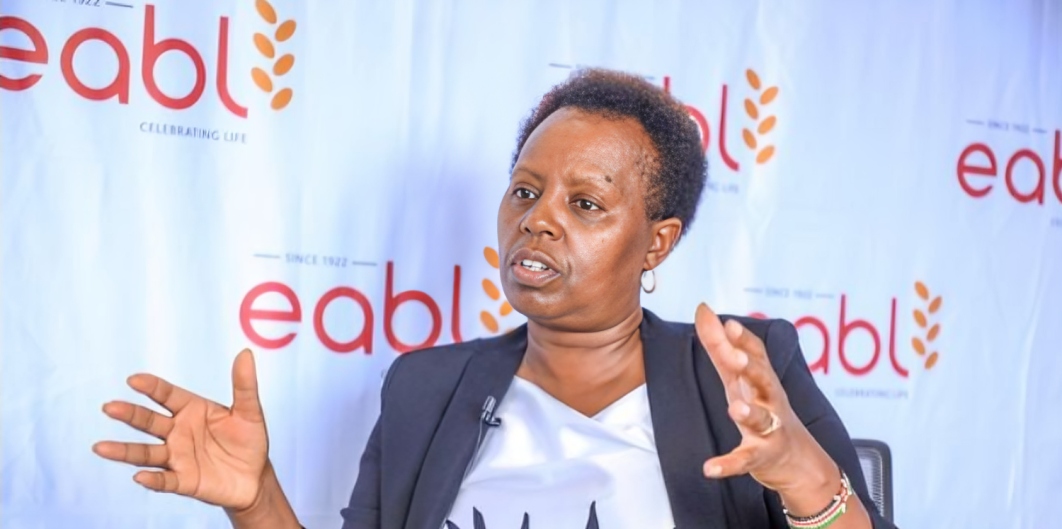
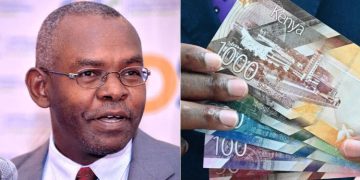
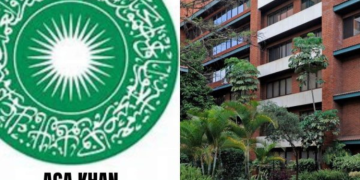



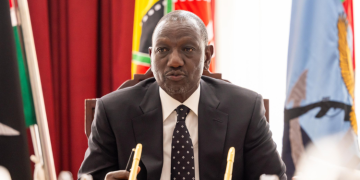






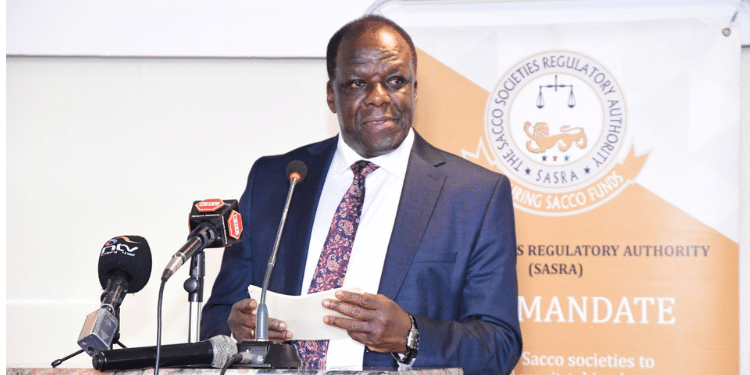



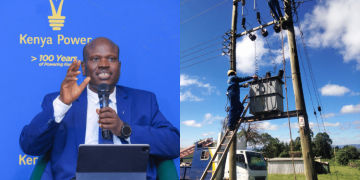
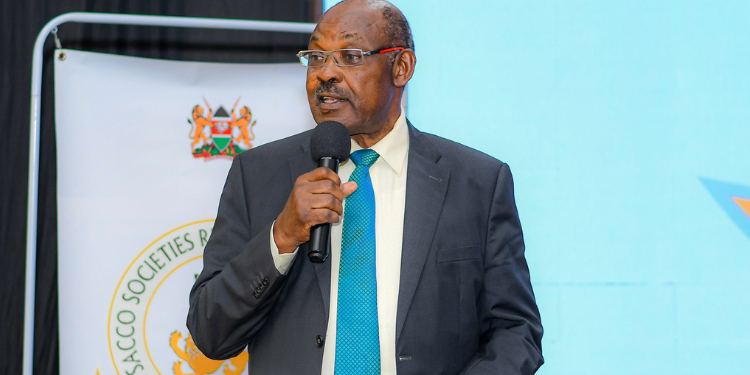































![Senator Allan Chesang And Chanelle Kittony Wed In A Colourful Ceremony [Photos] Trans Nzoia Senator Allan Chesang With Channelle Kittony/Oscar Sudi]( https://thekenyatimescdn-ese7d3e7ghdnbfa9.z01.azurefd.net/prodimages/uploads/2025/11/Trans-Nzoia-Senator-Allan-Chesang-with-Channelle-KittonyOscar-Sudi-360x180.png)

















![President Ruto'S Address At Un General Assembly [Full Text Speech] President William Ruto Addressed The Un General Assembly In New York Where He Called For Reforms.]( https://thekenyatimescdn-ese7d3e7ghdnbfa9.z01.azurefd.net/prodimages/uploads/2025/09/ruto-unga-address-750x375.jpg)


